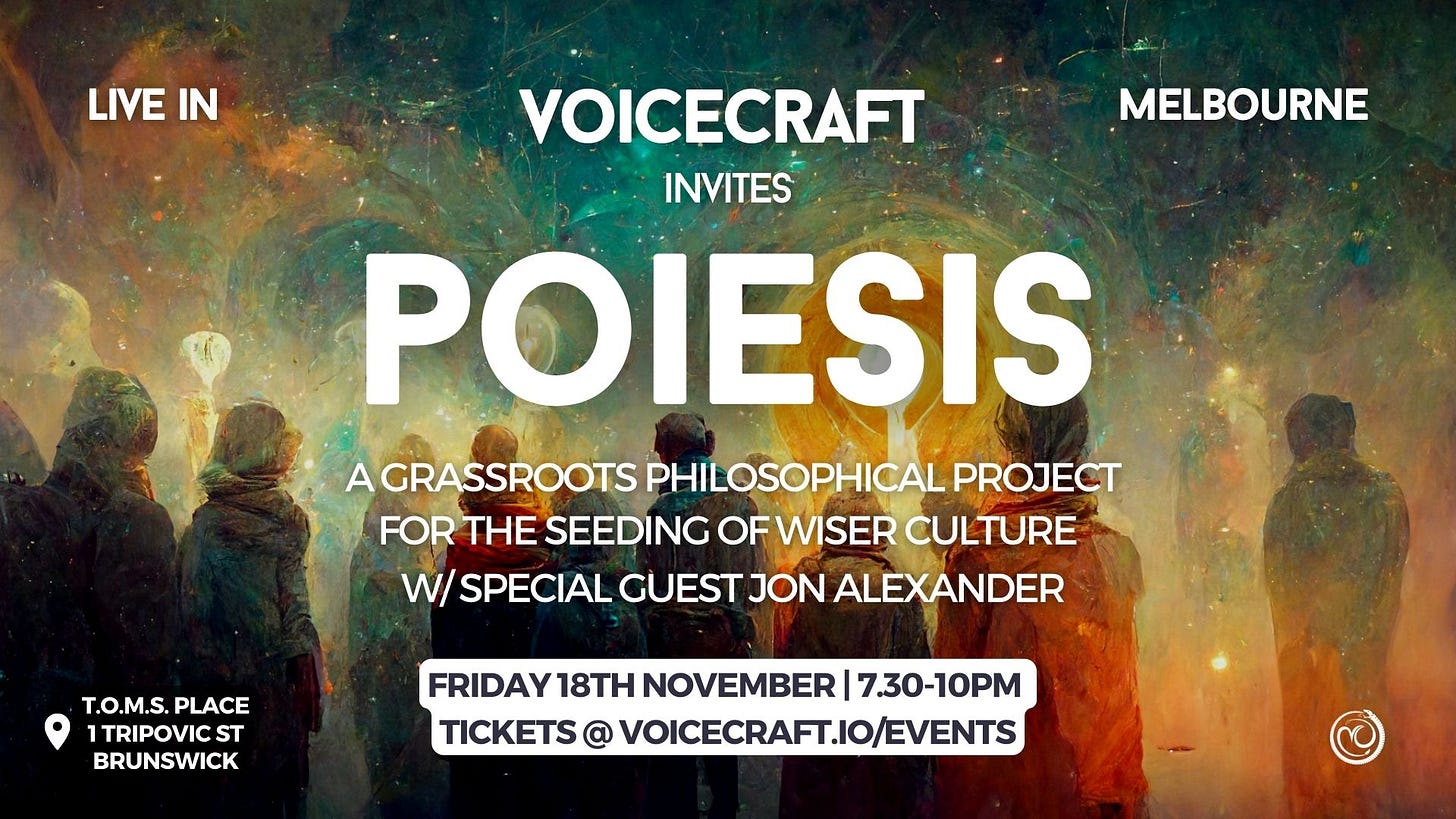"How does one become a philosopher?"
"...or know intuitively they are fit to call themselves one?”
Earlier this week I was asked a question.
Q: “Tim I am really curious, how does one become a philosopher, or know intuitively that they are fit to call themselves one?”
It’s a question I’d wager gnaws at many. Some years ago it gnawed at me. And perhaps a similar thing goes for labels like ‘artist’, ‘thinker’, and so on.
Here is my response: one that I’ll speak differently time and again, with confidence the essence would resonate still. There’s no social analysis here — no appeal to the dictates of recognition from some guild or network or discursive relation, or consideration of what those dictates could or should be. That’s a relevant analysis and I don’t mean to discount it from relevance. But it’s just one angle. And this is another, albeit, like all things, for a duration in time.
A: “That's a good question.
‘Philosopher’ is one of those terms which has been captured by the modern academy. So called 'professional philosophers'. As if modern philosophy departments are the sole worthy (if they are worthy at all) institutions to 'profess' one's vows of service to. They have neither a monopoly on wisdom or friendship.
I do not have a straight forward answer as to how someone comes to name themselves this or that.
And there are many other beautiful words and signs of identity which are worthy of the depth of meaning I find in the word 'philosophy'.
But some initial thoughts which come to mind relate to notions of dedication, understanding, transformation, relationship, death, affirmation, (and of course love, truth, delusion, wisdom.)
I do think philosophy is a matter of participating in the process of transformative touch (and release) with others and the world: a praxis which affirms negation as well as construction, the solve et coagula. That there is a dedication thereby to a wiser, dynamic becoming of oneself and a responsiveness to the changes this renders onto the being of self and the social constructions and ecologies of our time.
If you like, a kind of discernment about the nature of influence: the world through I, and I through the world.
But you know, a philosophy professor once said to me: 'philosophy means extreme pedantry about a topic of sufficient importance.' Which you might think puts a dour analytic spin on it.
But maybe that can be read as 'care about something important.'
But what, of course, is that?
A care about what to care about, perhaps.
And I'm saying that cannot be done idly. That this must be full blooded: embodied. And that this is a process of transformation, oriented by a kind of love.
To me (in words I like to write), philosophy is a form of dedication to loving transformation. And there are many forms and many ways!
And so one of my answers is: affirm your courage and care! Trust yourself to go slow. Allow the creativity that connects to come through. Meet others on the bridge. And know the unknown lives in you too.”
On Friday the 18th Nov Voicecraft is hosting its final live event of the year. Something of a pre-launch (or maybe just a launch) of its intention to host monthly ‘participatory festival of arts & ideas’ gatherings in 2023.
The event is called Poiesis, and invites an evening of contemplation about the meaning and spirit of participation at this unique cultural moment. If you are a Melbourne local, you can read more about it and purchase a ticket here.
And there’s also an online Voicecraft Open Session on the 21st/22nd November (timezone depending).
You are invited to join Daniel & Michelle Garner of O.G. Rose, along with myself and other Voicecraft Network contributors for a dialogical experience that explores the theme of Transformative Philosophy.
Example timezones are as follows (but trust the calendar invite you get via Zoom in case I make a mistake):
9AM AEDT 22/11/2022
5PM ET 21/11/2022
10PM UTC 21/11/2022
It’s free, and you can read more about it and RSVP here.
Discernment on the Way,
Tim



